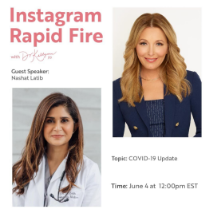Unraveling the Impact of Dietary Inflammatory Foods
Embarking on the journey to parenthood is an exciting chapter in any couple’s life. However, for some couples, conceiving a child can prove to be more challenging than anticipated. While various factors can affect fertility, one aspect often overlooked is the impact of diet. In particular, the consumption of inflammatory foods has been linked to reduced fertility in both men and women. In this article, we delve into the connection between dietary inflammatory foods and fertility, shedding light on how making healthier dietary choices can enhance your chances of conceiving.
Understanding Inflammatory Foods
Inflammatory foods are those that trigger an inflammatory response within the body. When consumed regularly, they can contribute to a state of chronic inflammation, which has been associated with a range of health issues, including reduced fertility. Examples of inflammatory foods include processed and fried foods, refined carbohydrates, sugary beverages, excessive alcohol, trans fats, and foods high in saturated fats.
The Impact on Female Fertility
For women trying to conceive, a diet high in inflammatory foods can disrupt hormonal balance, impair ovulation, and hinder the implantation of a fertilized egg. Chronic inflammation in the reproductive system may interfere with the delicate hormonal signaling necessary for successful conception and pregnancy. Moreover, it can increase the risk of conditions such as polycystic ovary syndrome (PCOS) and endometriosis, both of which can significantly affect fertility.
The Impact on Male Fertility
It’s not just women who are affected by dietary inflammatory foods. Men’s fertility can also be compromised by an unhealthy diet. Inflammation in the male reproductive system can impair sperm production, motility, and quality. Additionally, it can lead to oxidative stress, which damages sperm DNA and increases the risk of miscarriage and birth defects. Men consuming a pro-inflammatory diet may also experience hormonal imbalances that affect sperm production.
Reducing Inflammatory Foods, Boosting Fertility
The good news is that you can take an active role in optimizing your fertility by making conscious dietary choices. Avoiding or minimizing the intake of some of the most inflammatory foods will have a dramatic effect on your baseline level of inflammation and increase chances of natural conception. Here are four of the primary inflammatory foods and practical tips to reduce their presence in your diet:
- Gluten: Found in wheat, barley, and rye, gluten can contribute to inflammation and disrupt gut health. Consider opting for gluten-free alternatives such as quinoa, buckwheat, or gluten-free grains like rice and oats.
- Dairy: Dairy products, especially those derived from conventionally raised cows, can trigger inflammation in some individuals. Explore dairy-free options such as nut milk, coconut milk, or lactose-free products.
- Refined sugar: Excessive consumption of refined sugars found in sweets, desserts, and sugary beverages can lead to inflammation and hormonal imbalances. Replace sugary treats with naturally sweet options like fruits and satisfy your cravings with healthier alternatives like dark chocolate.
Industrial seed oils: Vegetable oils such as soybean, corn, and canola oil are rich in omega-6 fatty acids, which promote inflammation when consumed in excess. Opt for healthier cooking oils like olive oil, avocado oil, or coconut oil.
If you’d like to learn more about what it looks like to work with us, click here to watch our free, on-demand masterclass and discover the proprietary 4R Fertility FormulaTM we use to help you get pregnant naturally or get better results with IVF and IUI.
Take Action to Improve Your Health
Aside from taking away food, it’s important to build a healthy, fertile lifestyle. We’ve shared in a past article more about this. Here are some pointers we use to guide our clients in our fertility programs:
- Embrace a Whole Foods Diet: Focus on consuming a variety of whole, nutrient-dense foods such as fruits, vegetables, whole grains, lean proteins, and healthy fats. These foods are rich in antioxidants, vitamins, and minerals that support reproductive health and reduce inflammation.
- Opt for Anti-Inflammatory Foods: Incorporate foods with anti-inflammatory properties into your daily meals. Examples include fatty fish (salmon, sardines), nuts, seeds, olive oil, turmeric, ginger, and leafy greens. These foods can help counteract inflammation and promote fertility.
- Minimize Processed and Refined Foods: Reduce your intake of processed foods, refined grains, sugary treats, and beverages high in added sugars. These foods not only trigger inflammation but also lead to insulin resistance and hormonal imbalances, negatively affecting fertility.
- Maintain a Healthy Weight: Strive to maintain a healthy weight, as excess body weight can contribute to chronic inflammation and hormonal disturbances. Regular exercise and a balanced diet can aid in achieving and sustaining a healthy weight.
- Seek Professional Guidance: Consult with a qualified healthcare provider or a registered dietitian who specializes in fertility nutrition. They can provide personalized recommendations tailored to your specific needs and help optimize your fertility journey.
Conclusion
fertility-enhancing options, you can positively influence your chances of conceiving. While dietary changes alone may not guarantee pregnancy, they can significantly contribute to overall reproductive health. Prioritizing a wholesome, anti-inflammatory diet, coupled with a healthy lifestyle, sets the stage for a fertile future and enhances your journey toward welcoming a new life into the world.Each person is unique, and we can’t make any promises to you through this article. If you’ve been told that you have unexplained fertility or you’re ready for a lifestyle revamp to prepare your body for conception, we want to hear from you and see if you are ready for our program. Click here to watch our free, on-demand masterclass and discover the proprietary 4R Fertility FormulaTM we use that has had an 85% success rate in helping couples achieve pregnancy naturally.








